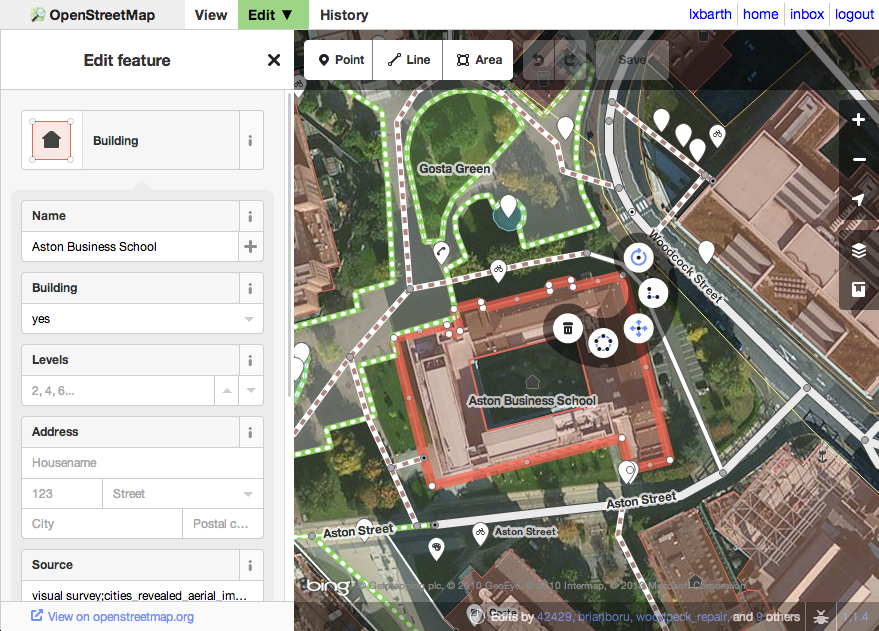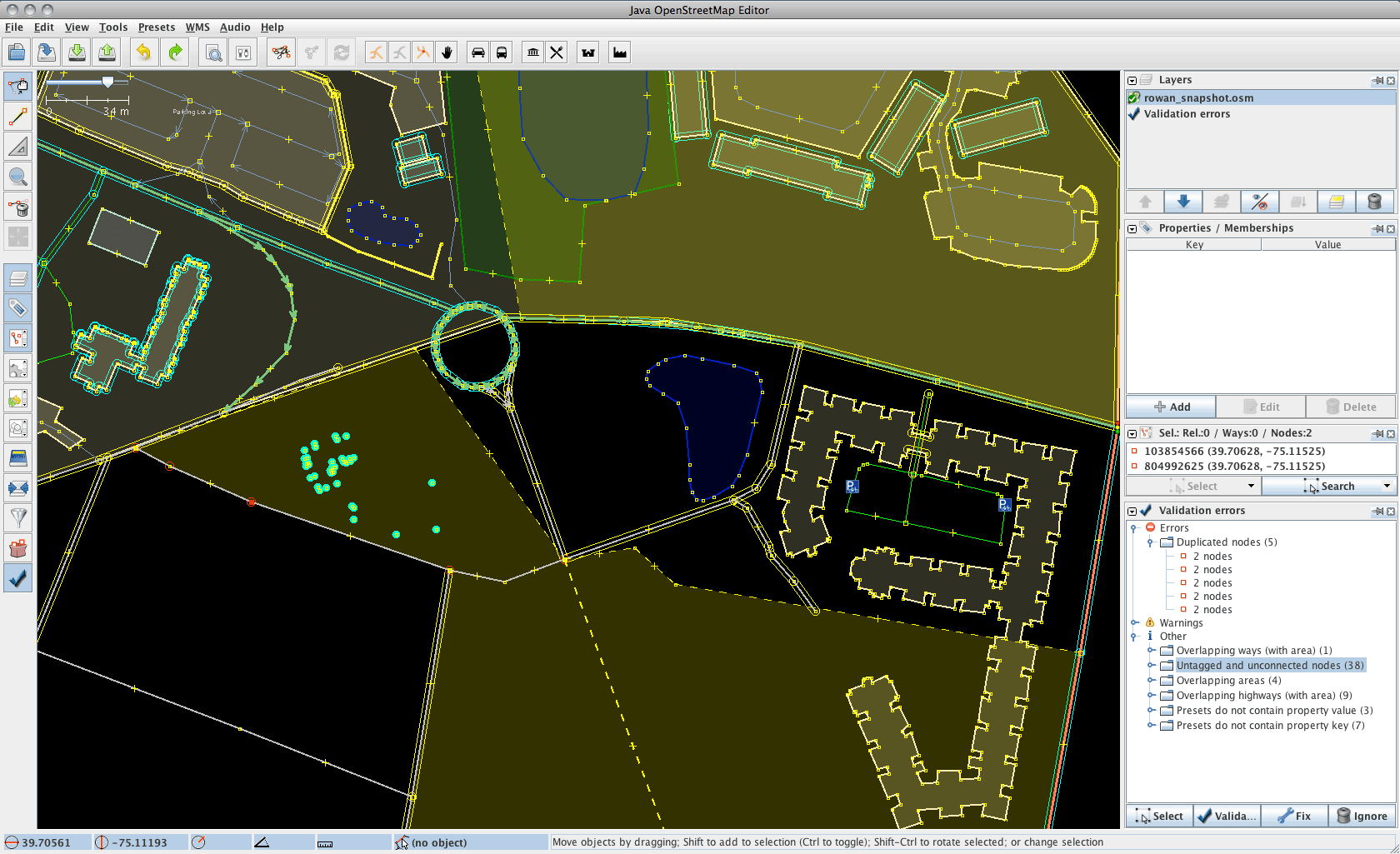- Other guides
- Útmutató kezdőknek
- JOSM – részletes szerkesztés
- Koordináció
- HOT Remote Mapping
- Humanitarian Mapping
- Remote, Armchair or Mapathon editing
- Tracing roads, buildings, water and landuse
- Reviewing OSM Data
- Mapping with a SmartPhone, GPS or Paper
- OSM Data
- HOT Tips - Getting started for new mappers - iD editor
|
|
HOT Remote Response Guide
The Humanitarian OpenStreetMap Team (HOT) is a global community working to apply the principles of open source and open data sharing towards humanitarian response and economic development. How Remote Response WorksThe majority of HOT’s response activities occur remotely. After a disaster strikes, HOT members search for existing data and available satellite imagery. Pertinent partners are contacted to provide ODbL compatible imagery. Once the imagery is obtained the virtual community digitizes, or traces from the imagery (normally, the focus is on recognizable objects that are useful for humanitarian response, like roads, buildings, blocked roads, flood extent, etc) and generates data and maps. During this time, responding organizations are also contacted to determine their needs. Considering the scale of the crisis, HOT allocates the necessary resources and the response is coordinated by a specific team or member who makes sure everyone knows when new resources are available as well as where to focus efforts. HOT fosters the engagement of the OSM community and, if existing, local actors to use tools like the Tasking Manager to coordinate response efforts. Examples include the remote activities done in Ivory Coast, Senegal, Philippines, and the Democratic Republic of the Congo. The HOT Tasking ManagerThe HOT Tasking Manager is a open source tool designed to divide up a mapping job into smaller tasks that can be completed rapidly. It shows which areas need to be mapped and which areas need the mapping validated by others. It includes mapping tasks for Activations, and longer standing Humanitarian Projects. In order to use the HOT Tasking Manager you need to sign up with OpenStreetMap (OSM) with a username and password. For more instructions read the Tasking Manager Tutorial. Editing ToolsiD - the web-based editor created by Mapbox with a very user-friendly interface. Generally considered the best editing tool to start with. You can launch this interactive iD editor tutorial to get acquainted with how to use it.
JOSM- a Java app pronounced as “Jaws-um”, which requires downloading the app and has a greater learning curve. Although it takes longer to setup and learn, it is super-fast for making more edits. Using a mouse is recommended for using this editor.
Advice & Words of Encouragement
Other ResourcesThis guide has been summarized and collected from a variety of existing tutorial sources and a working HOT Guide. You can find more learning resources at the links below. TutorialsLearnOSM’s Remote Mapping Guide- one of the most comprehensive guides MapGive’s Learn To Map tutorial- includes videos that you can pause to follow along HotQuickStartGuide - written by Peter Richardson (@meetar) an experienced HOT Remote Response Volunteer About HOTHOT Wiki Page- learn more about how HOT operates and some of their latest news HotCapacities- describes HOT activities in more detail from their website
Hasznos volt-e ez a fejezet?
Írd meg az észrevételeid, és segíts, hogy tovább javíthassuk az útmutatókat!
|




 Vissza az oldal tetejére
Vissza az oldal tetejére